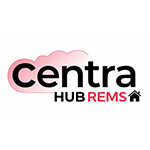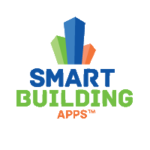Description

CentraHub REMS

HOA/POA Manager
Comprehensive Overview: CentraHub REMS vs HOA/POA Manager
CentraHub REMS and HOA/POA Manager are both specialized software solutions designed to cater to specific aspects of real estate and community management. Here’s a comprehensive overview of each:
CentraHub REMS
a) Primary Functions and Target Markets:
-
Primary Functions:
- Centralized real estate management: Facilitates the management of various real estate functions such as property sales, leasing, maintenance, and facilities management.
- Automation: Automates processes like billing, contract management, and customer relationship management.
- Real-time analytics: Provides insights for decision-making with comprehensive dashboards and reporting tools.
- Tenant and lease management: Helps in maintaining records of tenants, lease agreements, and ensures compliance.
- Maintenance management: Manages work orders and maintenance schedules to enhance operational efficiency.
- Financial management: Handles accounts, billing, and budgeting processes.
-
Target Markets:
- Real estate agencies and developers
- Property management companies
- Commercial and residential property owners and managers
b) Market Share and User Base:
- CentraHub REMS is a niche product within the broader property management software market, competing with products from companies like Yardi, AppFolio, and MRI Software.
- It primarily serves mid-sized to large enterprises due to its comprehensive features, which might not be as attractive to smaller operations.
- It has a growing user base in regions where digital transformation in real estate is rapidly advancing, often focusing on emerging markets.
HOA/POA Manager
a) Primary Functions and Target Markets:
-
Primary Functions:
- Community management: Assists in managing homeowners associations (HOAs) and property owners associations (POAs) efficiently.
- Dues collection and accounting: Automates billing, fee collection, and financial reporting for associations.
- Member communication: Facilitates effective communication within the community through emails, newsletters, and announcements.
- Compliance tracking: Ensures adherence to community rules, policies, and legal requirements.
- Facilities reservation: Manages bookings and reservations for shared community facilities.
- Document management: Stores and organizes important documents, meeting notes, and legal documents.
-
Target Markets:
- Homeowners associations (HOAs)
- Property owners associations (POAs)
- Community management companies
b) Market Share and User Base:
- HOA/POA Manager occupies a specific segment within property management software, designed explicitly for community and association management.
- While it might not have the market reach of more general-purpose property management solutions, it shows strong adoption in communities and organizations looking to streamline their operations.
- Its user base mainly consists of small to medium-sized associations and community management companies.
Key Differentiating Factors:
CentraHub REMS:
- Breadth of Features: Offers a broader range of real estate functionalities such as sales, leasing, and facility management, making it suitable for comprehensive property portfolios.
- Scalability: Designed to cater to larger enterprises, it can handle more complex real estate needs and larger datasets.
- Customization: Provides a higher degree of customization and integration capabilities with enterprise systems.
HOA/POA Manager:
- Simplicity and Focus: Focuses specifically on the needs of HOAs and POAs, providing tailored features that simplify community management tasks.
- Community Engagement: Emphasizes improving communication and engagement within communities, a critical component for managing associations.
- Cost-Effectiveness: Typically more cost-effective for smaller organizations due to its targeted feature set.
In summary, while CentraHub REMS offers a more extensive real estate management solution suitable for large and diverse property portfolios, HOA/POA Manager is tailored to the precise needs of homeowner and property owner associations, making each product suitable for its respective market niche.
Contact Info

Year founded :
Not Available
Not Available
Not Available
Not Available
Not Available

Year founded :
Not Available
Not Available
Not Available
Not Available
Not Available
Feature Similarity Breakdown: CentraHub REMS, HOA/POA Manager
When comparing CentraHub REMS and HOA/POA Manager, both software solutions cater to real estate and property management, but they may have different niches and strengths. Here's a breakdown of their feature similarities and differences:
a) Core Features in Common:
-
Property Management:
- Both platforms offer tools for managing properties, including residential and commercial spaces.
- They facilitate tenant and lease management, helping to record and track tenant information, leases, and renewals.
-
Accounting & Financial Management:
- Integration of accounting functions to handle accounts payable and receivable.
- Budgeting, expense tracking, and financial reporting are available in both systems.
-
Document Management:
- Capability to store, manage, and access property-related documents and contracts.
- Secure document sharing with tenants and stakeholders.
-
Communication Tools:
- Tenant and owner communication tools for sending notices, updates, and reminders.
- Integration with email and SMS for streamlined communication.
-
Maintenance Management:
- Features to log, track, and manage maintenance requests and work orders.
- Vendor management for outsourced maintenance services.
-
Reporting and Analytics:
- Provide insights into property performance, occupancy rates, financial health, etc.
- Customizable reporting capabilities.
b) User Interfaces Comparison:
-
CentraHub REMS:
- Typically boasts a more enterprise-focused user interface designed to cater to large-scale property management firms with complex needs.
- May offer customizable dashboards allowing users to tailor their views based on the metrics most important to them.
- Often features integrated CRM functionalities, making it appealing for users who require robust customer relationship management.
-
HOA/POA Manager:
- Likely has a simpler and more intuitive user interface aimed at homeowner and property owner associations.
- Focuses on ease of use for board members and community managers who may not have extensive technical expertise.
- User interfaces are generally designed to facilitate the management of community-specific features such as amenities scheduling and rule enforcement.
c) Unique Features:
-
CentraHub REMS:
- Offers advanced CRM integration, making it a strong choice for property managers who need detailed customer relationship tools.
- May include more extensive integrations with other enterprise systems, benefiting larger organizations with complex IT ecosystems.
-
HOA/POA Manager:
- Specifically tailored features for managing HOAs and POAs, including amenities scheduling, violation tracking, and enforcement, and community voting systems.
- Focuses on community engagement tools, providing forums, newsletters, and community announcements within the platform.
- Special features for managing dues and assessments specific to HOA/POA needs, possibly with tiered access for owners and board members.
Each of these platforms serves their primary customer base well, with CentraHub REMS offering robust options for larger property management needs and HOA/POA Manager excelling in the management of associations and their specific requirements. The choice between them will largely depend on the specific needs and scale of the organization.
Features

Maintenance Management
Property Management
Financial Reporting
Tenant Management
Customer Service
Sales and Marketing
Finance and Accounting

Community Management
Document Management
Financial Management
Governance and Compliance
Maintenance Management
Best Fit Use Cases: CentraHub REMS, HOA/POA Manager
CentraHub REMS and HOA/POA Manager are both specialized software solutions designed to address different needs within the real estate and property management industry. Here’s a detailed look at the best fit use cases for each:
a) CentraHub REMS:
Types of Businesses or Projects:
-
Real Estate Developers:
- Dealing with large residential, commercial, or mixed-use developments.
- Require a comprehensive solution to manage project lifecycles from pre-construction to post-handover.
-
Property Management Companies:
- Overseeing multiple properties across various locations.
- Need features like lease management, tenant billing, and maintenance tracking.
-
Commercial Leasing Companies:
- Providing space in office buildings, retail centers, or industrial complexes.
- Need tools to manage complex lease structures and track key metrics.
-
Real Estate Investment Trusts (REITs):
- Managing portfolios with a focus on asset performance and financial modeling.
- Require integration with financial systems for better investment analysis.
b) HOA/POA Manager:
Preferred Scenarios:
-
Homeowner Associations (HOA):
- Managing community rules, regulations, and member communications in residential neighborhoods.
- Features like covenant compliance, architectural requests, and community engagement tools are critical.
-
Property Owner Associations (POA):
- Handling a mix of residential and commercial properties within a community or development.
- Require tools for managing common area maintenance, collecting dues, and organizing board meetings.
-
Condominium Associations:
- Oversee condo buildings or complexes, managing private and shared spaces.
- Need efficient ways to handle service requests, amenities scheduling, and budgeting.
d) Catering to Different Industry Verticals or Company Sizes:
-
Industry Verticals:
- Real Estate Management: Both CentraHub REMS and HOA/POA Manager provide tailored functionalities to streamline operations, whether it’s a high-rise building or a sprawling subdivision.
- Financial Services: Integration capabilities with bookkeeping or accounting software cater to entities focusing on real estate investments and financial analytics.
- Facilities Management: CentraHub REMS is apt for businesses needing detailed facilities upkeep, while HOA/POA Manager helps communities manage shared amenities.
-
Company Sizes:
- Small to Medium Enterprises (SMEs): The flexibility and modular nature of these solutions allow smaller firms to implement the core functionalities they require without heavy customization.
- Large Enterprises: Scalability features support more extensive, multi-location operations, providing robust reporting, compliance tracking, and global access integration.
- Non-Profit Associations: HOA/POA Manager is particularly useful for non-profit groups that handle property management like associations or cooperatives, offering cost-effective community management systems.
In summary, CentraHub REMS is ideal for property developers, large-scale property managers, and investment firms needing a sophisticated and comprehensive property lifecycle management tool. On the other hand, HOA/POA Manager is specifically suited for associations needing targeted solutions for community management and governance, making it a preferred choice for homeowner and property owner associations.
Pricing

Pricing Not Available

Pricing Not Available
Metrics History
Metrics History
Comparing undefined across companies
Conclusion & Final Verdict: CentraHub REMS vs HOA/POA Manager
Conclusion and Final Verdict for CentraHub REMS vs HOA/POA Manager
a) Best Overall Value:
Determining the "best overall value" between CentraHub REMS and HOA/POA Manager depends heavily on the specific needs and priorities of the user. If a comprehensive, customizable, and scalable system is required, particularly for real estate businesses with diverse portfolios, CentraHub REMS might offer superior value. However, if the focus is strictly on efficiently managing homeowner or property owner associations with specific features tailored for such communities, HOA/POA Manager might be more beneficial.
b) Pros and Cons:
CentraHub REMS:
Pros:
- Comprehensive Features: Offers a broad range of functionalities for real estate management, including CRM, lease management, accounting, and facility management, among others.
- Customization: High level of customization ensures it can be tailored to specific business needs.
- Scalability: Suitable for expanding businesses that may need additional modules over time.
- Integration Capabilities: Can integrate with various third-party applications and services, facilitating holistic business processes.
Cons:
- Complexity: Given its wide array of features, it may present a steep learning curve for new users.
- Cost: Potentially higher cost, particularly if many modules or custom integrations are required.
- Overkill for Small Operations: Might be too complex or comprehensive for smaller, simpler operations.
HOA/POA Manager:
Pros:
- Specialization: Tailored specifically for managing homeowner or property owner associations, providing features such as member communication tools, dues management, and community event scheduling.
- User-Friendly: Generally more straightforward and easier to use, minimizing the time required to train staff.
- Cost-Effective: May offer better pricing for small to mid-sized associations with straightforward needs.
- Streamlined Processes: Focused tools and features can streamline community management.
Cons:
- Limited Scope: Might lack functionality for broader real estate management needs beyond HOA/POA-focused tasks.
- Scalability Concerns: May not be as easily scalable for larger operations or expansion beyond HOA/POA-specific tasks.
- Integration Limitations: Potential limitations in integrating with third-party applications outside its core functions.
c) Specific Recommendations:
-
Assess Needs and Scale: Users should conduct a thorough assessment of their specific needs, focusing on whether they require a comprehensive real estate management suite or only HOA/POA management features. CentraHub REMS is a better fit for those needing broad capabilities, while HOA/POA Manager suits associations needing targeted solutions.
-
Budget Considerations: Consider both initial costs and long-term investment. CentraHub REMS may require a higher upfront investment but could offer cost efficiency over time with its versatility, while HOA/POA Manager could be more budget-friendly for smaller associations with limited scope.
-
Ease of Use vs. Features: If usability and ease of training a team quickly are priorities, HOA/POA Manager might be preferable. On the other hand, if having a wide array of features is crucial, CentraHub REMS should be considered despite its complexity.
-
Trial and Feedback: Engage in trials or demos of both products with a focus group of end-users to gain firsthand experience and feedback on usability, features, and satisfaction levels.
Ultimately, the decision should align with strategic goals, operational needs, and budget constraints, ensuring the chosen software scales with the organization’s future growth and complexity requirements.
Add to compare



